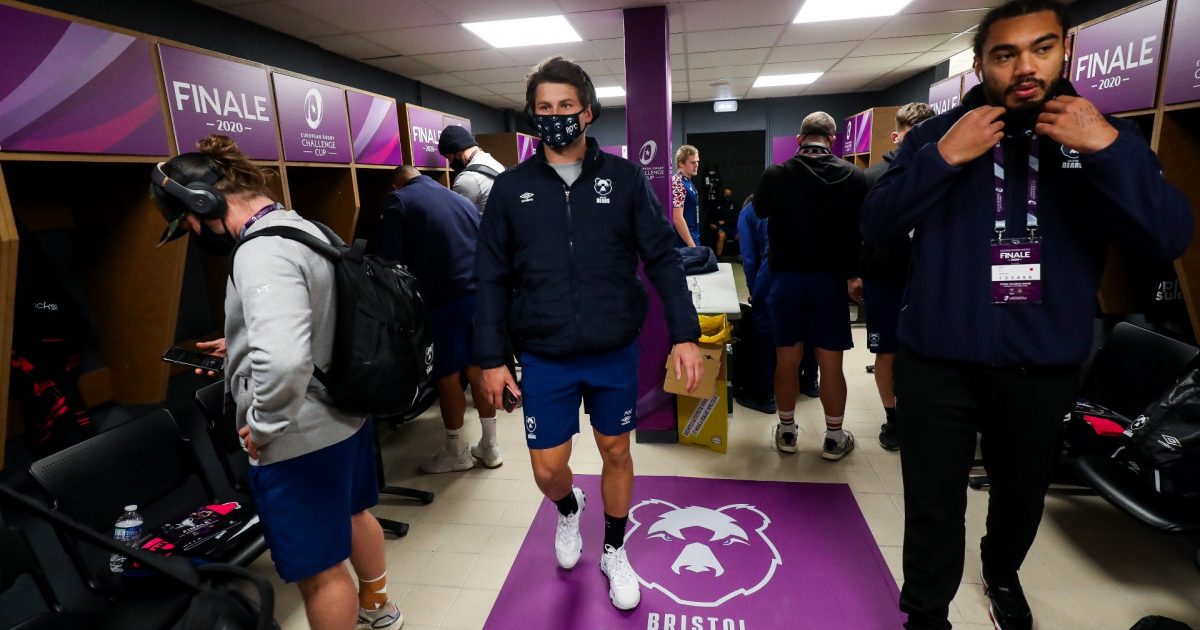Bristol revise the heated first impression of their Champions Cup crash

Bristol boss Pat Lam has pointed the finger of blame in-house for his team’s frustrating Heineken Champions Cup round of 16 exit in Bordeaux. The Gallagher Premiership club coach initially expressed his anger over refereeing decisions that happened during the course of the April 4 17-36 defeat.
However, having had more time to reflect, he and his coaching staff are now taking their frustrations out on the training ground, clamping down on training game infringements in the hope of ensuring Bristol can be a better disciplined, less error-strewn team in the run-in to the Premiership semi-finals.
Bristol return to action on Saturday at Newcastle and they hope that the intense work they have done during their 13-day gap in between competitive matches will ensure they are not left cursing their luck – and the referee – again.
The Bears started beautifully in France with a Henry Purdy try but they then got into penalty trouble and trailed 15-14 at the break before going on to lose following the concession of two tries in the closing ten minutes, the first one a hotly debated concession as it was felt that Bordeaux had knocked on earlier in the move.
That incident left Lam fuming but he has since made his peace with the Champions Cup refereeing team and instead taken matters into his own hands at training to try and influence an improvement when league leaders Bristol head to Kingston Park at the weekend.
Fuming. https://t.co/fpUQKmQFmS
— RugbyPass (@RugbyPass) April 4, 2021
Asked what was the main takeaway from the painful European exit was, Lam said: “Discipline. We should have been two, three scores ahead. It is easy to say that but when you show options that were available, holes that were available, either us dropping the ball or passing when we were in gaps…
“We scored an excellent team try off a set-piece, Henry Purdy, which gave us a start, but we gave away ridiculous penalties that were of our own making. We arrived at half-time where we had pretty much gifted them 15 points from stupid decisions.
“Discipline was an issue against Harlequins, it was an issue against Sale, so we have had a really good time to discuss solutions on how we improve that, so we have been working away on that and hopefully we will see that this weekend.
“A lot was made of the officials but I have spoken to Joel Jutge and I am comfortable they look that. That is not the reason we lost. Certainly, we should have been in a stronger position before we got to that last ten, 15 minutes. After half-time, we made three or four real basic errors which put us under pressure in the first five minutes.
“You go through it, deal with the players individually and as a group in the sense that they get a chance to reflect and feedback on it, and we came out of that with really good outcomes and that is the sort of thing you want to improve.
“No one wants to not play their best, no one wants to make mistakes, but there were things that cost us and you say, right, here is our learning and there is more emphasis. Even at training now we make sure we call guys who are a centimetre offside or bad pictures – and the players drive that as well.”
Pre-Covid, the Bears used to have referees along to training to help spruce up their act. Now the officiating is left to the Bristol coaches and they have been busy in the aftermath of their Champions Cup exit. “You will have someone who is looking up and down the field radio in if it is offside. It’s fair to say we haven’t been as tight on that but that has been one of the outcomes for us as coaches looking at.
“We have got to look at ourselves and say, right, we have to have stronger consequences and what the players have come saying too we have got to do that at training as well. They have come up with some good ideas. I won’t share them. Everyone wants to drive this together.
“We can’t keep doing ‘sorry boys, my bad’ because it cost us in the Champions Cup. We are trying to get guys to reflect their game, not only on the technical thing of I was offside or I missed the jump or I missed the tackle, we put that in the context and the moment in the game and then have a really good reflection.
“You can say well I missed my lift but that was the last lineout where we had a chance to win the game. When you put in tactical context it certainly helps the growth.”
'Can you imagine a Premiership club going ‘Right lads, we’re going skiing’. Absolutely no way… it was me, Bryan Habana & Duane Vermeulen learning to ski together' @Dmjattwood fell out of love with rugby at Bath but found it again, writes @heagneyl 👨💻 https://t.co/QWWZQPD1Ek
— RugbyPass (@RugbyPass) February 21, 2021





























